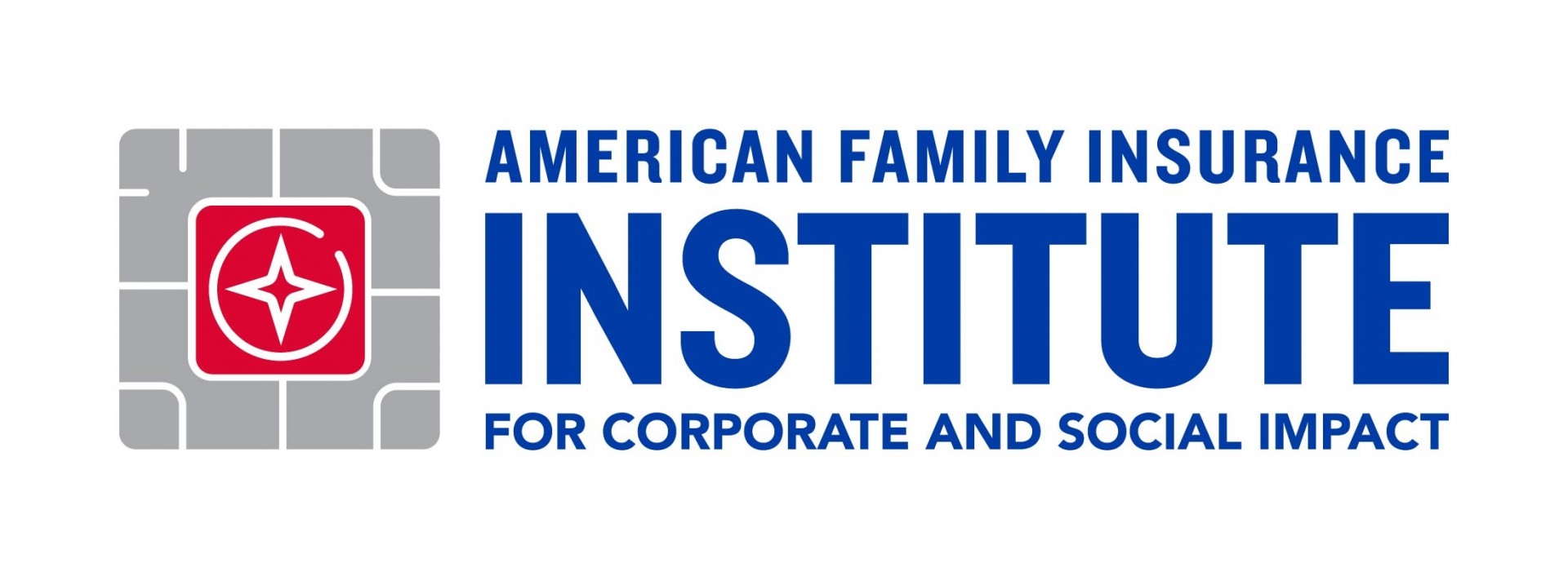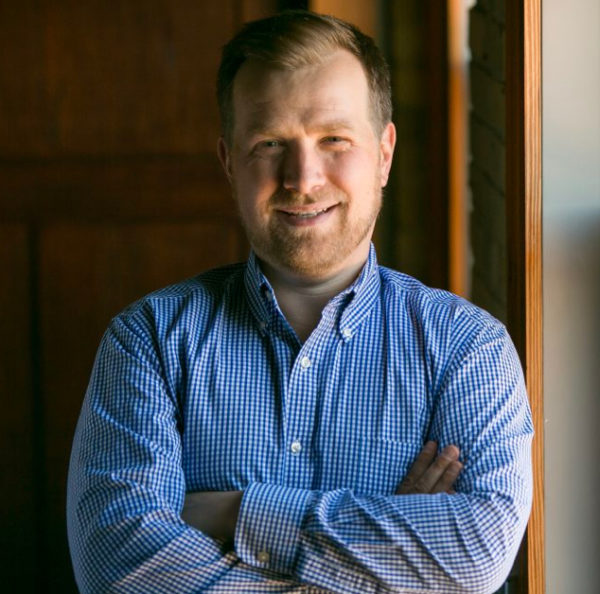
This article appears as part of This Week in Milwaukee Rising, a weekly newsletter from Technical.ly highlighting the innovators bringing a more just, equitable and dynamic Milwaukee economy. Subscribe here. The series is underwritten by American Family Insurance Institute for Corporate and Social Impact.
By the time he sold his company, Kyle Weatherly was burned out.
Growing up on 53rd and Vliet streets, the Milwaukeean was always reminded of the hardworking ethics of his neighbors. It was one of the reasons that following college, he left for Compton to serve as an AmeriCorps volunteer. He landed at Habitat for Humanity, where he said he discovered his “dream job” as a site supervisor — until his mother called him up one day to ask him for a favor.
Years earlier, his mom had turned his childhood bedroom into a workspace for her growing medical garments company, Solaris, and struggling with managing day-to-day operations and rapid growth, urged Weatherly to take the helm of the company. What Weatherly thought would be a golden opportunity to bolster his resume soon “turned into a goldmine,” he told Technical.ly, when the company was acquired by a European medical devices giant for an undisclosed amount in 2014.
Running the company “was 100% all of me, and I thought I was going to die at my desk,” Weatherly said. “When out of the blue, people wanted to buy our company at aggressive prices, I didn’t struggle.”
In startup circles around Milwaukee, Frontdesk is often eyed as a potential unicorn for the city’s lumbering tech scene.
With his newfound financial freedom, Weatherly began to plot his next move. He took a year off from the grind of corporate life, and traveled the world, staying at Airbnbs and other short-term rental properties as he traversed South America, Southeast Asia and Central America. He considered launching a business — or retiring altogether. But as the miles wore on, Weatherly felt the urge to get back to work and make an impact.
When his friend, Jesse DePinto, reached out to ask “What’s next for you?” Weatherly was still unsure, but his experience living overseas spurred an interest in the short-term rentals market. DePinto saw the potential for jumping into the market, too.
The two cofounders launched Frontdesk, an urban short-term rental company with a proprietary software solution for automating and scaling operations. Within a few months, the company, which works with landlords to “maximize the value of vacant units,” was drawing more than $40,000 a month in revenue, according to Weatherly.
Frontdesk has since raised more than $21 million, per Crunchbase, including a $4 million round completed earlier this year. While Weatherly won’t disclose financial terms, he said remains bullish on the short-term rentals market.
In startup circles around Milwaukee, Frontdesk is often eyed as a potential unicorn for the city’s lumbering tech scene. Could it be the breakthrough Milwaukee needs? Ever the humble leader, Weatherly won’t say, but he does think an exit could be the propelling factor to move the city’s startup ecosystem forward.
Technical.ly sat down with Kyle Weatherly for a wide-ranging interview to discuss his journey from home builder and volunteer, through a successful exit from his family company on to leading Frontdesk, one of Milwaukee’s most notable and successful startups. This interview has been condensed and lightly edited for clarity.
###
Working for Habitat for Humanity was a dream job. You moved back to Madison, Wisconsin to become a site supervisor, enrolled in grad school — and got a call to work with your mom in her growing business. What made you switch gears?
I technically worked full-time, went to school full-time [pursuing nonprofit management], and worked on a capital fundraising campaign. I thought I was going to do a year of service and go right back to my career. I fell in love with working at Habitat, but I also wanted to lead and had career ambitions. My goal was to run a Habitat somewhere in the world.
The funny timing is, the only thing entrepreneurial I had done at that point was move out of my bedroom so my mom could start her business. When I was finishing grad school, she’d always complain about running the company and said “Why don’t you come run the company?” My passion was with Habitat, but it was an opportunity to furnish my resume. Do I go back to run a Habitat, or run a small company for two years? She had five employees. I went with Option B. Obviously, it turned out to be the best decision of my life.
In 2014, Solaris was acquired by a European conglomerate for undisclosed terms. Can you tell me how it affected your career moving forward?
Long story short, my mom put me in a position where I had a ton of leadership at 26 years old. I really fell in love with working in a small business. As much as I’d like to say that I thought the fulfillment was the “do-goodness” of it, I got a lot of fulfillment from the private sector by trying to be good at my job, trying to treat suppliers, customers and employees well. I tried to apply the same ethos of trying to do the right thing and to do right by others that you get in the nonprofit world.
The issue came later when the thing I enjoyed about Habitat and running a small company was you could start at Point A and see Point B. Like putting up sheetrock or roofing, you could see progress. When we grew to 150 employees, not so much. The larger you scale, the harder it was to improve things. It was much less obvious to see the impact of my work.
In 2014, when we sold the company, I stayed on until 2016. They [the acquiring company] were great; not a single complaint. We sold for a dollar amount, but I sold for financial freedom. When I looked around, it was a fine job, but when you have the option to do the job and get the most joy and fulfillment, it just wasn’t my cup of tea.
Did you struggle with letting that chapter go?
Every startup founder I ever talked to has meaningfully struggled with selling the company — I didn’t. At one point, Solaris was my only passion in life; it was where all my self-worth and identity came from. If we had a good [report] at 7 p.m. when I would get our email updates, depending on where that landed, it literally made me happy or sad. It was 100% all of me, and I thought I was going to die at my desk. When out of the blue, people wanted to buy our company at aggressive prices, I didn’t struggle. Part of it was growing up on 53rd and Vliet, in a working-class neighborhood. The idea that I could be financially secure at 34 … it was just so unattainable. I never even thought about selling Solaris, until someone offered to buy it.
You worked in leadership from a young age, but clearly, the exit gave you a range of financial freedom — and options. Why did you choose a startup?
When I left, I thought, “Do I want to start a business, go back to a business, or want to retire? I was a little scared that I wanted to retire. I worked a lot at Solaris and going through the sale was a very intense process. We had structured [the deal] in such a way that the US headquarters would move to Milwaukee. Consolidating operations was incredibly intense and I was burned out. I thought, “We’ll never regret a year off to travel.” I left [Solaris], got married, and me and wife traveled the world for a year. After about three months, it became clear to me that I wanted to work again. Then my business partner [DePinto] asked me what I want to do next.
Frontdesk has become one of the city’s most successful startup stories. Why did you choose the startup route, and how has becoming CEO there been different from your experience leading Solaris?
It’s sort of night and day. If I’m honest, when I started running a company at 26, you have so much vim and vigor and you want to learn everything. I probably wanted to control more than I should want to control. But, I was bullish on short-term housing even before we traveled; we used a lot of Airbnb, and I became very informed in that space.
Today at Frontdesk, we partner with multifamily landlords to maximize their occupancy. We are able to take vacant inventory and turn it into short-term rentals in a safe, secure, and reliable way. One of the smarter things we did [as a startup] — and I am not going to glamorize it — is I loaned the company money, and we also bootstrapped. My wife was able to work in the company, and I worked for free. But it wasn’t until we were doing $40K in revenue [per month] that we started fundraising. It forced us to have a level of financial diligence and thoughtfulness.
It’s very easy for a startup to say “I want to do A, and then raise money to do that.” We [grew the business] with our current constraints. We relied on cash flow, and then we could grow. Eventually, as we wanted to scale, it required capital. I would never raise money if you weren’t able to identify product-market fit and best practices. I’m not wired that way.
Don’t get me wrong: COVID was incredibly hard. We probably could have gone out of business six or seven times. I might have given up if it wasn’t for the enthusiasm of my cofounder. I don’t know if I would’ve been as strong of a leader without him by my side. Thankfully, we’re seeing the other side of it.
According to Crunchbase, you’ve raised north of $21 million, including $4 million in your latest funding round, earlier this year. What’s next for you guys?
We’re still incredibly bullish on the market. We think we can be the No. 1 or No. 2 urban short-term housing provider in the US. The market is going to grow for foreseeable future. We get incredibly excited about the tech we’ve grown around the way and creating deeper relationships with customers. We are looking to sell our software, our PMS [property management software], as we currently sell to a [handful of operators in our space]. We think there is huge potential. Our software has powered our growth and financial performance. It’s attracted other people in our space to want to use it. We want to press that advantage, as well as other opportunities in the short-term rental and multifamily space.
What is your overall feeling about Milwaukee’s startup tech scene? Are we on the cusp of a unicorn?
I hope this doesn’t sound like “the grass is always greener …” but I personally wish we could figure out how to train and inspire more people to launch startups. I would say, the complaints we have about our programming don’t hold up, when you can find instances where other states and cities also have the absence of those programs and are still [thriving]. It just seems we don’t have a culture at this point of people willing to leave their job and start a very scaleable business at levels necessary to have a very vibrant startup scene.
My advice for young founders is, that if you want to get involved in startups, you can get to know everybody in [Milwaukee’s tech scene] in three months through [networking] or email. I’ve never said no to a meeting. People here are extraordinarily approachable. I don’t know what the solution is, but almost every “tech city” that has a great culture and a lot of participants, has had a major exit. You need to have a unicorn; then all of a sudden you’ll have hundreds, if not thousands of people who have stock options, or enough money to chase their dreams.
The kind of training it takes to work in a startup is so different from Corporate America. If I could wave a magic wand with two priorities it would be we need to get lucky with a few unicorn exits, and we need more people starting startups with the ambition, skill and financial wherewithal.
What do you think has helped make you a successful entrepreneur?
Look, there are people who are true geniuses and great leaders. For me, my experience is 90% the right place, at the right time. I went to grad school with a lot of talented people and I’m the only one I know that was given an opportunity to run a company at 26. I didn’t know, and my mom didn’t know, she was sitting on a gold mine. My experience has been good luck and making good judgment to the extent that, if I deserve any credit, it’s been thinking in the long-term. I was willing to go to Habitat for Humanity, willing to invest in grad school, and willing to take a job with my mom — the lowest-paying option at the time — and later, willing to reinvest in the company. I’ve been good at delayed gratification.
But 90% of it, is just really good f****** good luck. Guy gets rich, he invests.
Subscribe to This Week in Milwaukee Rising:
Join the conversation!
Find news, events, jobs and people who share your interests on Technical.ly's open community Slack

Philly daily roundup: Student-made college cost app; Central High is robotics world champ; Internet subsidy expiration looms

Delaware daily roundup: Early-stage loan help; Jobless rate drops below 4%; $700k grant for industrial park

Philly daily roundup: Earth Day glossary; Gen AI's energy cost; Biotech incubator in Horsham


